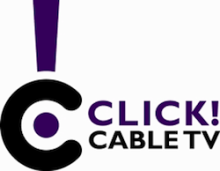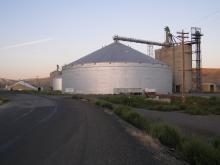
This is Part 1 in a four part series about the Click network in Tacoma, Washington, where city leaders spent most of 2015 considering a plan to lease out all operations of this municipal network to a private company. Part 1 explains Tacoma's plans for Click's immediate future.
Part 1: Tacoma Votes to Explore Keeping Click!
2015 was a tense year for Tacoma Click, the nearly 20-year-old municipal network in this city of about 200,000 just south of Seattle. In March of 2015, Tacoma Public Utilities (TPU) announced it was considering a proposal to sign a 40-year agreement to lease out the network to a private Internet Service Provider (ISP). But after months of deliberations, the Tacoma City Council decided in December with a resounding 8-0 vote at the last City Council meeting of the year to explore what the city calls their “all in” option: a plan which, if implemented, would include technological upgrades and major structural changes to the business model aimed at preserving Click as a municipally-owned network.
When Tacoma Click, one of the first municipal networks in the U.S., launched its Hybrid Fiber Cable (HFC) system in 1999, the network provided Internet speeds that were among the fastest in the country. For the past two decades, Tacoma Click has provided community anchor institutions, businesses, and residents in Tacoma with access to retail Cable TV service and wholesale Internet and phone service.
Click has never managed to pay for itself. However, nothing in Click’s financial reports can account for the municipal network’s numerous indirect contributions (both economic and otherwise) and overall value to the Tacoma community as a whole. There are also promising signs that the network is positioned for future growth.
Taking Sides
The tone of discussions at City Council meetings over the past year about Click’s future signaled a strong desire by some city officials to get out of the telecom business altogether. Before the December vote, two of five TPU board members favored the lease option, a proposal to lease the network that would have effectively marked the end of Click as a municipal network. Several other Tacoma officials have expressed deep concerns throughout the year about Click’s ongoing financial viability, including Tacoma’s Mayor and TPU director Bill Gaines.
Still, since the TPU’s first suggestion in March of 2015 that the city consider getting out of the municipal broadband business, some city officials have consistently pushed back. At a July meeting, Councilwoman Lauren Walker summed up a lot of the frustration among people in Tacoma who saw the proposal to dump Click as unnecessarily hasty and lacking sufficient support.

"You keep coming back and telling us it's not financially feasible," she told TPU Director Bill Gaines. "What we're trying to figure out…, as crazy as it is -- there's so much value in the city keeping the damn thing -- is how can we do it and what would that look like? And so, I know it's more work, but that's why I think you don't have the council on board, and I think that's why I think there's so much disharmony in the community."
Plans Moving Forward
The December vote does not guarantee that the city will keep Click. Rather, the vote approved the creation of a seven person “Click Engagement Committee” that is now helping TPU officials create a new business plan -- expected to be completed in the coming months -- to map out a recommendation for a 5-year business plan for the network.
Among the city’s plans under this “all in” option include an objective to upgrade the network infrastructure. In the range of $3.5 to $6 million, city officials say they can make upgrades that would increase Click’s connection speeds from its current fastest available rate of 100 Megabits per second (Mbps) up to Gigabit per second (Gbps) speed levels.
A second major proposed change, according to reports about the “all in” option, is that the city is looking to revamp its current operating structure. Currently, Click provides retail Cable TV services while a group of private ISPs provide the retail Internet and phone services. Under the “all in” plan for a revamped Click, reports say Click will become the sole retail provider of Internet access, Cable TV, and phone services over the network.
The Will of the People Makes a Difference
When the city announced its plans in March to explore getting out of the business of operating Click, the public reacted strongly against the proposed plan. In one example, a group of concerned citizens created “Stick with Click,” a coalition of Tacoma residents advocating to keep Click as a municipal network.
Large groups of passionate Tacoma citizens attended town hall meetings last spring (see here and here) to express their desire to keep Click. At a September meeting where the City Council voted to keep TPU director Bill Gaines in his position, a vocal contingent of public commenters urged City Council members to fire Gaines over his management of Click.
Then in November, Tacoma citizens re-elected the City Council’s most vocal supporter of the “all in” plan to keep Click, Anders Ibsen, even as Ibsen’s colleagues on the City Council and Tacoma’s mayor endorsed his opponent. Of the more than 40 Tacoma citizens who spoke during the public comments portion of the December City Council meeting, all except one voiced their support for the “all in” option.
In the end, consistent and vehement public support for Click as a city owned and operated network played an important role in the City Council’s decision to look for a way to keep Click and improve it. But how did we get here? In Part 2 of this series, we’ll cover in detail the varied financial factors that brought Click to this crossroads in the first place.

Photo Credit: Dean J. Koepfler, Tacoma News Tribune Staff Photographer, through Creative Commons







